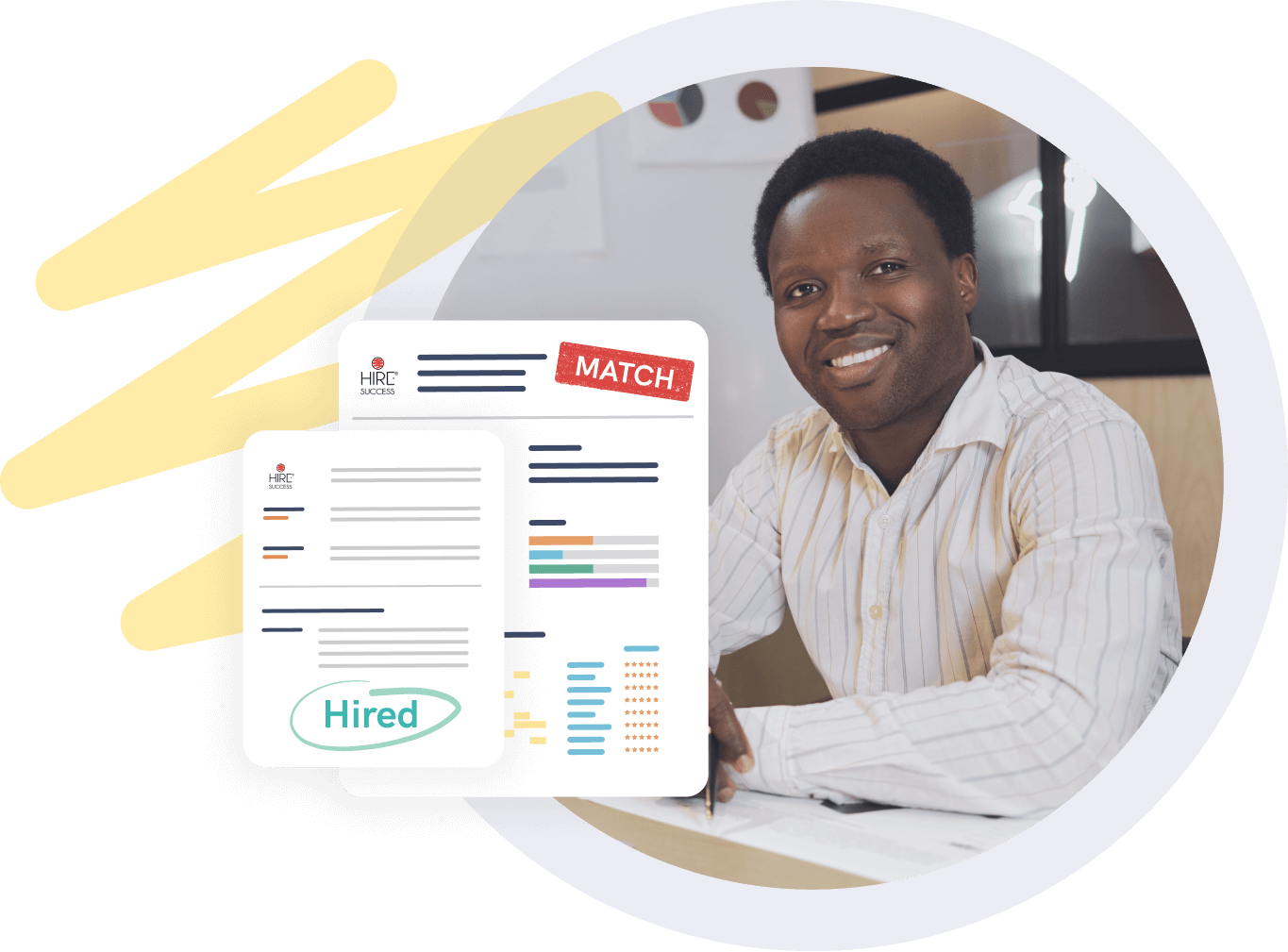During the hiring process, employers often misdirect their initial review efforts on resumes. In other words, they focus solely on candidates' experience, background, and education.
The problem with this method is that some of your candidates can look great on paper, but lack the personality traits and skills necessary for the job or company culture. Remember, resume information is controlled and designed by the applicant to make them look as impressive as possible.
Successful performance often depends more on personality than particular skills. When your hiring process includes more comprehensive assessment methods, you're more likely to identify the right applicant the first time.
Hire Success® is often asked how and when companies should use employment testing to get the best results. Working with thousands of companies over the years, Hire Success® has found that the best answer is sooner than you think.
What are the best practices for using pre-employment tests?
The primary purpose of pre-employment testing is reaching beyond basic job knowledge evaluations to find potential hires who will enhance your team. Well-conceived hiring campaigns can result in a huge influx of applicants. Comprehensive candidate selection methods will help you weed out unqualified applicants to avoid bad hires and adverse business outcomes.

1. Select the right assessment tests for the job to get the information you need
There are many types of tests, and the combination you choose depends on what you'd like to learn about your potential employees. To determine what's most important, tap the wealth of information in your office. Develop baseline job profiles based on your best employees.
Personality tests can be a reliable job performance forecasting tool available. With a well-developed job profile based on successful employees, you can use personality traits to identify prospective employees with the best chance of success for the position.
Other pre-employment assessment tests include skill and aptitude tests, integrity tests or you can build your own custom job test. The latter combines important indicators designed to help you weed out bad applicants and identify the best person for the job before the interview begins.
The right questions will get you the right answers. Using test results, Hire Success® compiles a list of effective interview questions designed to expand your knowledge base.
2. Make sure your employment tests are administered legally to prevent lawsuits
Choose testing protocols carefully to avoid bias. Otherwise, you may risk pre-employment testing violating federal anti-discrimination laws by disproportionately excluding people in a particular group. Reputable providers such as Hire Success® ensure your pre-employment testing is legal and fair.
For general information on discrimination, Title VII, the ADA, and the ADEA, visit the U.S. Equal Employment Opportunity’s website.
Invest in future performance, predict long-term fit
Use our personality assessment to identify candidates who will thrive in their role and in your evolving organization.
Book a demo Try it free
3. Test job applicants early in the process to quickly establish a fair approach
Testing early provides a standardized and more fair approach from the beginning, serving up solid data and an objective view of every candidate. A data-driven approach lessens the likelihood of showing a conscious or unconscious bias towards any candidate for the wrong reasons. It’s easy to be more inclined to hire someone relatable. Still, the person you have a lot in common with is not always the person best suited to the job.
Testing early will also help avoid potential discrimination and give all qualified first-round applicants a chance to advance. By testing everyone, you avoid singling out any candidates because of race, color, national origin, sex, religion, age or disability.
This is why Hire Success® strongly suggests using pre-employment test implementation to assess everyone who passes your basic selection criteria. The “Branded Job Site” feature from Hire Success® allows you to ask those questions in the beginning and prior to testing, so you can quickly review and weed out anyone who lacks a minimum amount of experience, licenses, qualifications, or skills.
4. Make sure your hiring team is all on the same page to establish consistency and clarity
Make sure that everyone on your hiring team understands when to test job applicants and knows the limitations of any tests. Pre-employment testing can help your business as long as hiring managers understand and follow clear procedures for each hire.
5. Monitor the success of your pre-employment tests and stay on top of legal compliance
As your business grows and your company culture develops, go back to your baselines regularly and make sure that the positive traits and skills identified for the job still match the profiles and descriptions for all openings created.
Over time, job responsibilities can merge and evolve, and as a result, so can your understanding of the ideal employee for that position. You may discover that a more or less aggressive personality type is a better fit for your brand image. A general position may evolve into a more specific role.
6. Use job tests developed by a professional for the most efficiency
While you can develop your own questions, mistakes can be costly or useless. Hire Success® uses psychological principles to reveal traits that applicants may want to hide. Then the company compares answers from the applicant pool to your baseline profile to find the top candidates matches. These candidates not only should have the right skills and experience, but also personality traits shared by your most successful existing employees. Hire Success® is your secret weapon to target the best hires.
Consult with a Hire Success® specialist
Ready to improve the hiring practices at your organization? Hire Success® can help you find the perfect hire in less time, saving clients time and money. With custom interview questions for each pre-employment assessment, you can be confident that every new hire will have a positive impact on team productivity. Contact Hire Success® today to set up a free, no-obligation 30-minute consultation.
Latest Stories
Here’s what we've been up to recently.

How to Create Skills-Based Assessments for Hiring
Companies are taking a closer look at the skills they need employees to have, and how to best assess those skills. Having a degree or certification in a certain area is not an accurate indicator of candidate capability. This new awareness has led to what Harvard Business Review calls a “reset in hiring practices.”
Kelly Cantwell

Why Hiring Takes So Long and How to Speed It Up
Talent shortages and increased competition made hiring difficult in a pandemic. Top candidates were often swept off the market quickly, meaning businesses who failed to act fast were left to hire from a smaller, less-qualified applicant pool.
Kelly Cantwell

Structured vs. Unstructured Interviews
There are two basic styles, or models, of interviews employers usually use when hiring new employees: structured and unstructured interviews. Just like job candidates, each one has its own strengths and weaknesses. But do the advantages of a structured interview outweigh the advantages of an unstructured interview?
Kelly Cantwell
Get our stories delivered
From us to your inbox weekly.